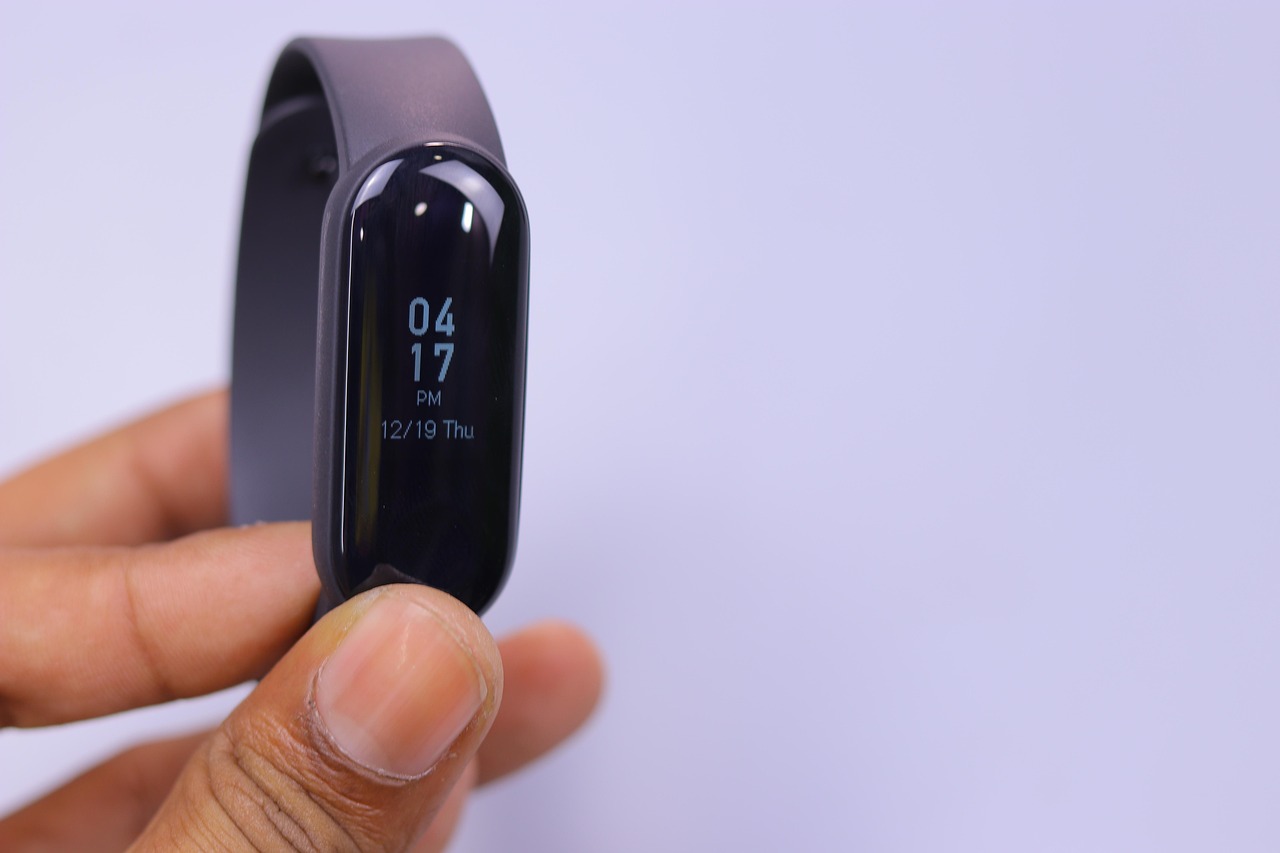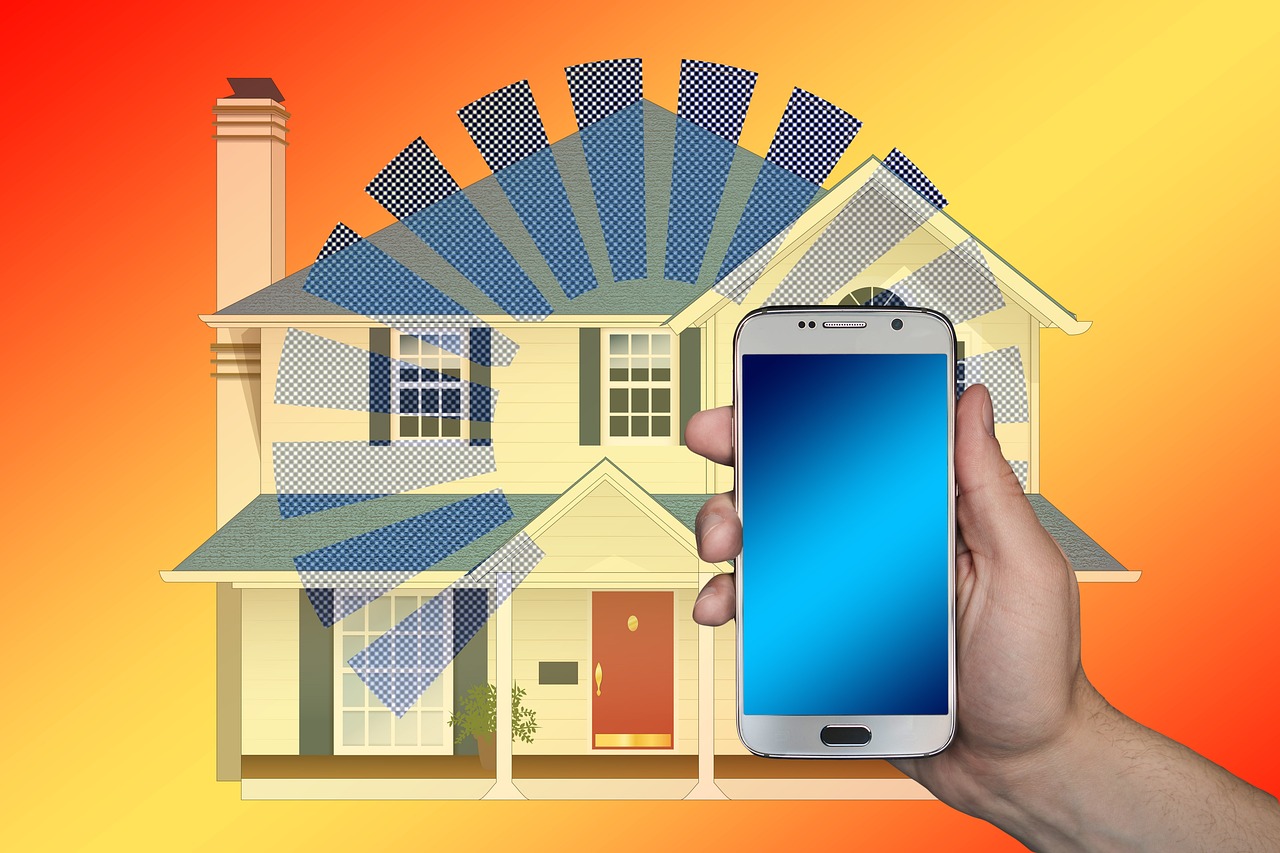In the rapidly evolving landscape of technology, smart home devices have emerged as essential tools for modern living. These devices not only provide convenience but also enhance security and promote energy efficiency. This article delves into the myriad advantages of incorporating smart technology into your home, ultimately making daily life more manageable and enjoyable.
The Convenience of Smart Home Devices
Smart home devices revolutionize the way homeowners interact with their living spaces. With the ability to control various aspects of your home through a smartphone or voice commands, these devices streamline daily tasks. Imagine adjusting your thermostat, turning off lights, or even locking doors—all from the comfort of your couch or while on the go.
Enhanced Security Features
Security is a top priority for any homeowner. Smart home security systems provide real-time monitoring and alerts, ensuring that your home is protected even when you’re not there.
- Smart Cameras and Doorbells: These devices offer visual surveillance, allowing you to monitor your property and see who is at your door from anywhere.
- Real-Time Alerts: Receive instant notifications on your smartphone when motion is detected, giving you peace of mind.
- Two-Way Communication: Engage in conversations with visitors through smart doorbells, enhancing security when you’re away.
Energy Efficiency and Cost Savings
Smart home technology can lead to significant energy savings. By optimizing energy usage, homeowners can enjoy lower utility bills and contribute to a more sustainable lifestyle.
- Smart Thermostats: These devices learn your habits and adjust heating and cooling accordingly, ensuring comfort while minimizing energy waste.
- Smart Lighting Solutions: Automate your lighting to reduce energy consumption, ensuring lights are only on when needed.
Improved Home Automation
Integrating smart devices creates a seamless home automation experience, enhancing the overall functionality of your living space.
- Voice Assistants: Use voice commands to control all your smart devices, simplifying your daily routines.
- Automated Routines: Set schedules for tasks like turning off lights or adjusting the thermostat, making your home more intuitive.
Increased Property Value
Smart home technology can significantly enhance your property’s appeal, making it more attractive to potential buyers.
- Market Trends: Homes equipped with smart devices are increasingly sought after, reflecting a growing trend in real estate.
- Future-Proofing: Investing in smart home devices prepares your home for upcoming technological advancements.
Conclusion: The Future of Smart Homes
Embracing smart home devices not only enhances your quality of life but also positions your home for the future. As technology continues to advance, integrating smart solutions is a wise investment for any homeowner.
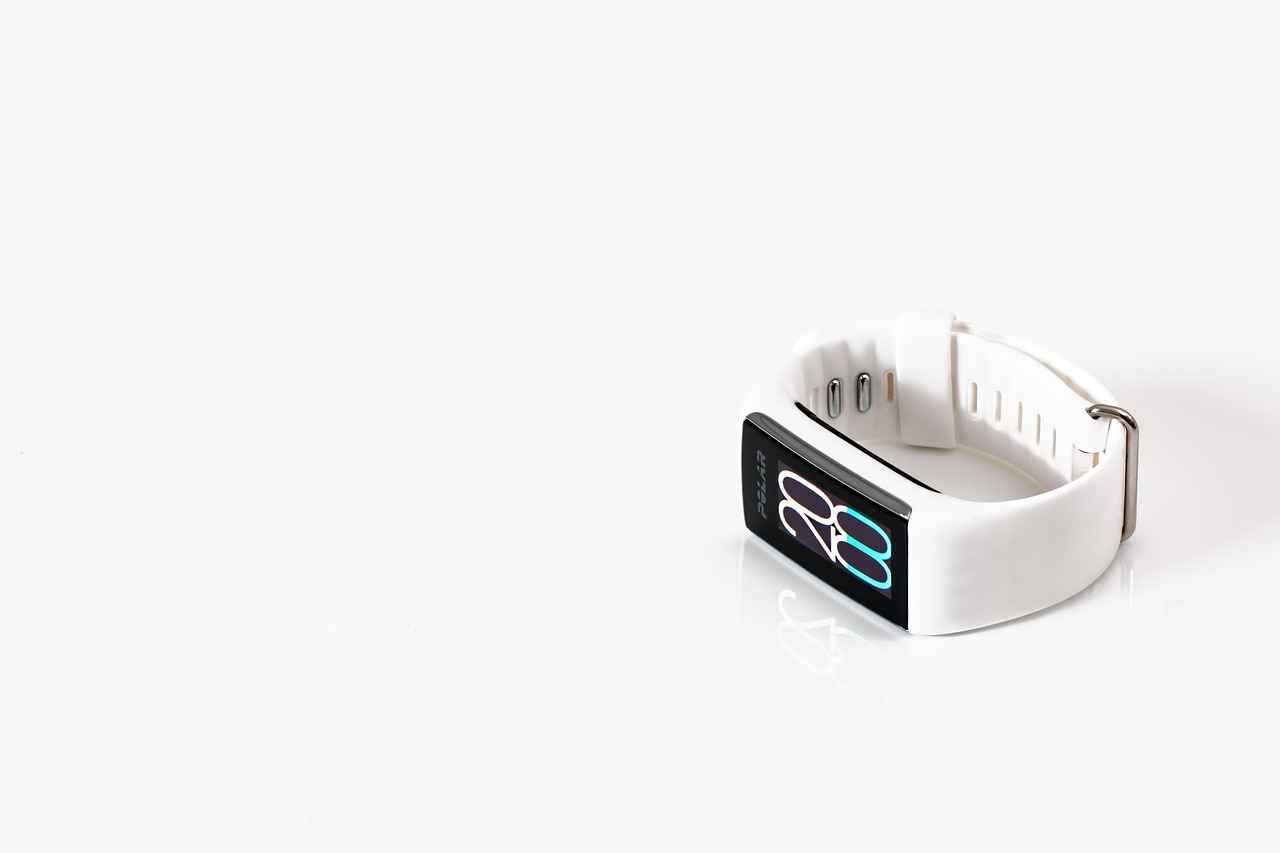
The Convenience of Smart Home Devices
In the rapidly evolving landscape of technology, smart home devices have emerged as a transformative solution for homeowners seeking to enhance their daily lives. These innovative devices offer a level of convenience that was once unimaginable, allowing users to manage their home environments with just a few taps on their smartphones or through simple voice commands. This seamless integration of technology into our homes is not only about luxury; it fundamentally changes how we interact with our living spaces.
- Remote Control: Imagine being able to adjust your thermostat, turn off lights, or even lock your doors from anywhere in the world. Smart home devices enable this remote control, giving homeowners peace of mind and flexibility.
- Voice Activation: With the rise of voice assistants like Amazon Alexa and Google Assistant, managing your home has never been easier. Simply speaking commands can control everything from your entertainment system to your kitchen appliances.
- Automation: Smart home devices can be programmed to automate routine tasks. For instance, you can set your lights to dim at a certain time or have your coffee maker start brewing at sunrise, enhancing your daily routine.
- Integration: Many smart devices can work together, creating a cohesive ecosystem that enhances convenience. For example, your smart security system can communicate with your smart lights to illuminate your home when you arrive at night.
Moreover, the integration of smart home technology can lead to significant time savings. By automating mundane tasks and providing instant access to information and control, these devices free up valuable time for homeowners to focus on what truly matters. In essence, smart home devices not only simplify our lives but also empower us to create a more efficient and enjoyable living environment.
In conclusion, the convenience offered by smart home devices is a game changer. As technology continues to advance, embracing these innovations will undoubtedly lead to a more connected, efficient, and enjoyable home experience.
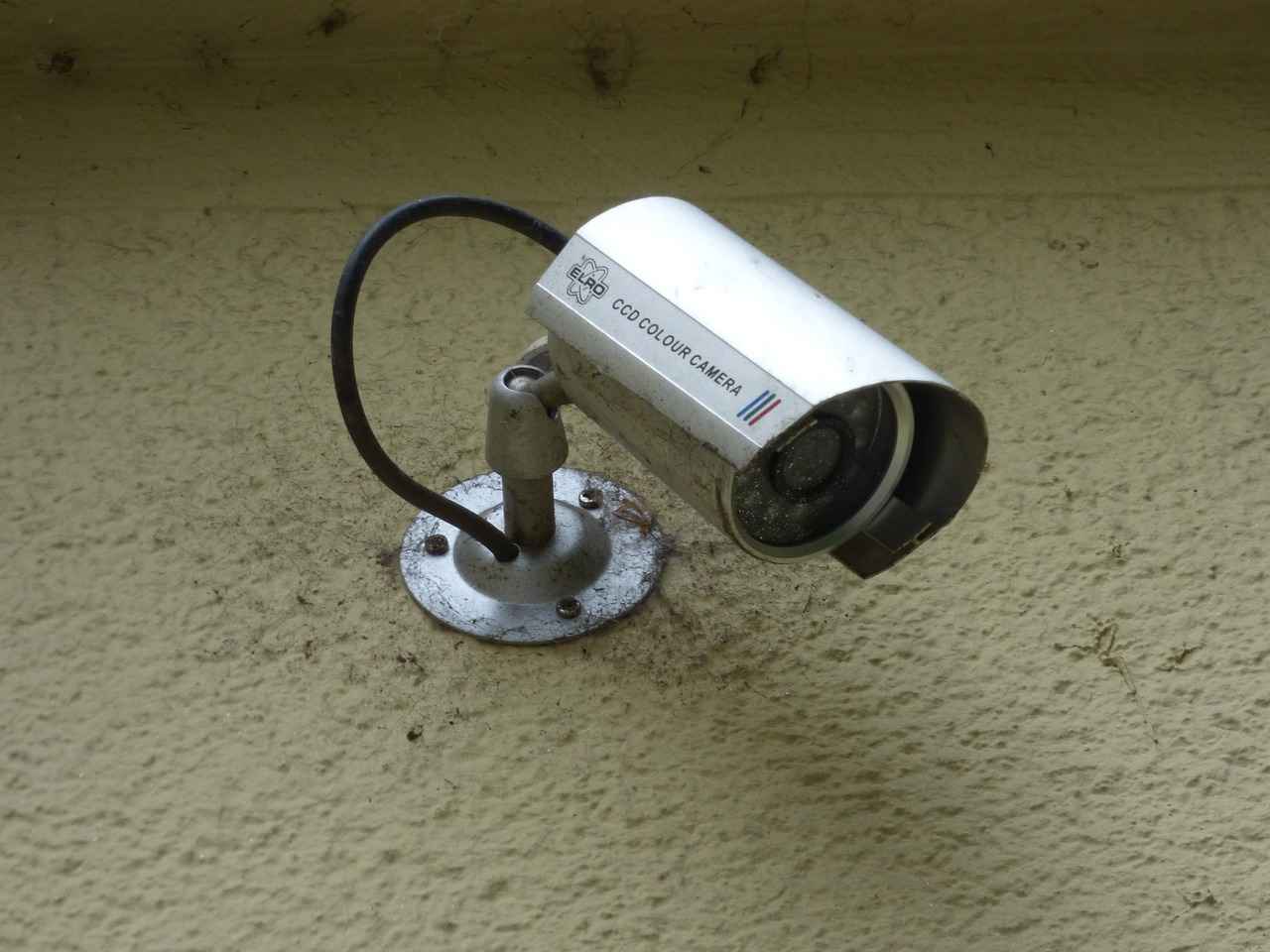
Enhanced Security Features
In an era where safety is paramount, smart home security systems have emerged as a vital component of modern living. These systems are designed to provide homeowners with an unparalleled sense of security through a range of advanced features.
One of the standout features of smart home security systems is their real-time monitoring. This allows homeowners to keep an eye on their property from anywhere in the world. With the help of smart cameras and sensors, you can view live footage of your home directly on your smartphone or tablet, ensuring you are always connected to your living space.
- Instant Alerts: Receive immediate notifications on your mobile device if any unusual activity is detected. This feature empowers you to respond swiftly to potential threats, enhancing your peace of mind.
- Remote Access: Control your security system remotely, allowing you to lock doors, view camera feeds, and even communicate with visitors through smart doorbells.
- Integration with Other Devices: Smart security systems can be integrated with other home automation devices, providing a comprehensive security solution that works seamlessly.
Moreover, smart cameras and doorbells offer more than just surveillance. Many models come equipped with two-way communication, allowing you to speak with delivery personnel or visitors without opening your door. This feature is particularly useful when you’re away from home.
Investing in a smart home security system not only enhances your home’s safety but also adds a layer of convenience that traditional systems simply cannot match. As technology continues to evolve, these systems will only become more sophisticated, providing homeowners with the tools they need to protect their families and property effectively.
In conclusion, the integration of smart security features into your home is a proactive step towards ensuring safety and peace of mind. With their advanced capabilities, smart home security systems are essential for any homeowner looking to enhance their living environment.
Smart Cameras and Doorbells
Smart Cameras and Video Doorbells have revolutionized home security, providing homeowners with the ability to monitor their property in real-time. These innovative devices not only enhance safety but also offer a wealth of features that contribute to a smarter living environment.
- Visual Surveillance: With smart cameras, homeowners can easily see who is at their door or moving around their property. This visual access is available from anywhere, thanks to mobile applications that connect to these devices.
- Remote Monitoring: Whether you are at work, on vacation, or simply out for the day, smart cameras and doorbells allow you to keep an eye on your home. This capability provides peace of mind, knowing that you can check in at any time.
- High-Quality Video: Most modern smart cameras come equipped with high-definition video capabilities, ensuring that you can see clear images, even in low light conditions. Many also feature night vision, enhancing visibility after dark.
Another significant advantage is the real-time alerts. Homeowners receive instant notifications on their smartphones when motion is detected, enabling them to respond promptly to any potential threats. This feature is particularly beneficial for those who may not always be home.
Furthermore, smart doorbells often include two-way communication, allowing homeowners to interact with visitors directly through their smartphones. This means you can speak to delivery personnel or guests without opening the door, adding an extra layer of security.
In conclusion, smart cameras and video doorbells are essential components of modern home security systems. Their ability to provide visual surveillance and remote access empowers homeowners to protect their property effectively, making them a wise investment for anyone looking to enhance their home security.
Real-Time Alerts
are a crucial feature of modern smart home security systems, enhancing the safety and security of your home. With the advancement of technology, homeowners can now receive instant notifications directly on their smartphones whenever motion is detected around their property. This capability not only provides peace of mind but also empowers homeowners to respond swiftly to potential threats.
Imagine being at work or on vacation and receiving an alert that someone is at your front door or moving around your backyard. With real-time alerts, you can:
- Monitor Activity: Keep an eye on your home from anywhere, ensuring that you are always informed about any unusual activity.
- Enhance Response: Quickly assess the situation and decide whether to contact authorities or take other necessary actions.
- Stay Connected: Maintain a sense of control over your home security, even when you are miles away.
Furthermore, many smart security systems allow you to customize your notification settings. You can choose to receive alerts for specific events, such as:
- Motion detected at specific times of the day.
- Activity in designated areas, like driveways or backyards.
- Notifications for specific individuals, such as family members or service providers, entering your home.
By utilizing , you can ensure that your home is protected around the clock. This feature not only increases your home’s security but also enhances your overall sense of safety, knowing that you can take immediate action if necessary. In a world where security is paramount, embracing smart technology is a wise choice for homeowners seeking to safeguard their property and loved ones.
Two-Way Communication
through smart doorbells represents a significant advancement in home security and convenience. This technology allows homeowners to engage in live conversations with visitors at their doorstep, even when they are not physically present. The integration of this feature brings an array of benefits that enhance both safety and accessibility.
Smart doorbells are equipped with high-definition cameras and built-in microphones, enabling users to see and communicate with anyone at their door via a smartphone app. This capability is particularly useful for:
- Deterring Unwanted Visitors: The ability to interact with delivery personnel or potential intruders can discourage suspicious behavior, as the visitor is aware they are being monitored.
- Managing Deliveries: Homeowners can instruct delivery drivers on where to leave packages, reducing the risk of theft or damage.
- Welcoming Guests: Users can greet friends and family, making them feel welcome even if the homeowner is away from home.
Moreover, the two-way communication feature promotes peace of mind. Homeowners can:
- Check on Vulnerable Family Members: Communicate with children or elderly relatives at home, ensuring their safety and well-being.
- Receive Real-Time Alerts: Get notified of any activity at the door, allowing for immediate interaction if necessary.
In addition to enhancing security, smart doorbells with two-way communication streamline daily routines. Homeowners can easily manage their home environment, making it easier to coordinate schedules and ensure that everything runs smoothly.
In conclusion, the integration of two-way communication through smart doorbells not only elevates security but also adds a layer of convenience that modern homeowners increasingly value. By embracing this technology, you can ensure your home remains a safe and welcoming space, regardless of your physical presence.
Smart Locks and Access Control
Smart locks represent a significant advancement in home security and convenience. They offer keyless entry and remote access, which means you can control who enters your home without needing to rely on physical keys. This feature is particularly beneficial for busy homeowners and those who frequently welcome guests or service providers.
One of the most appealing aspects of smart locks is their ability to provide temporary access. For instance, if you have a friend visiting or need to allow a service provider into your home while you are away, you can easily grant them access through your smartphone. This eliminates the need for you to be present or to hide a spare key, which can often lead to security vulnerabilities.
Additionally, smart locks often come equipped with advanced features such as activity logs that track who enters and exits your home and when. This can be invaluable for monitoring the comings and goings of family members or service personnel, providing you with peace of mind.
Many smart locks also integrate seamlessly with other smart home devices, allowing you to create a more comprehensive home automation system. For example, you can set your smart lights to turn on automatically when the door unlocks, enhancing both security and convenience.
Moreover, most smart locks can be controlled via voice commands through smart assistants like Amazon Alexa or Google Assistant. This hands-free capability adds another layer of convenience, especially when your hands are full.
In conclusion, the integration of smart locks into your home not only enhances your security but also elevates your overall living experience. By providing keyless entry, remote access, and the ability to monitor who enters your home, smart locks are a smart investment for any modern homeowner.
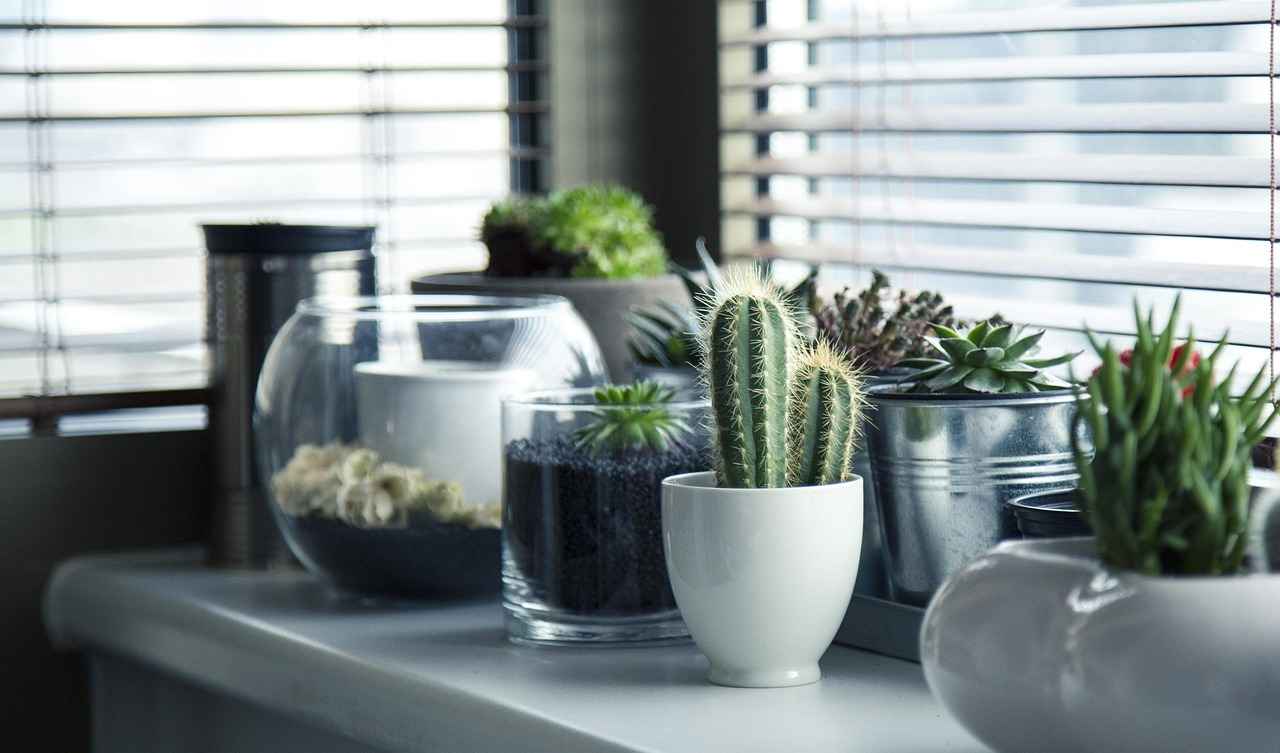
Energy Efficiency and Cost Savings
are two significant advantages that smart home devices bring to modern living. In an era where environmental concerns and rising energy costs are at the forefront, integrating smart technology into your home can lead to substantial benefits not just for your wallet, but also for the planet.
One of the most impactful devices in this category is the smart thermostat. These devices are designed to learn your heating and cooling preferences over time. By analyzing your daily routines, smart thermostats can adjust the temperature automatically, ensuring that energy is not wasted when you are away from home. This adaptive technology can lead to energy savings of up to 30% on heating and cooling bills.
Another excellent example is smart lighting solutions. These systems allow for remote control and automation, which means you can schedule lights to turn on or off based on your daily activities. For instance, lights can be programmed to turn off when you leave for work and turn back on as you return home, ensuring that energy is conserved when not in use. This not only reduces energy consumption but also extends the lifespan of your bulbs.
Moreover, smart plugs can help manage energy use by allowing you to control devices remotely. You can turn off appliances that are not in use or set timers to ensure they operate only when needed. This level of control can lead to significant reductions in energy waste.
In conclusion, the integration of smart home devices is a practical approach to achieving energy efficiency and cost savings. By optimizing energy use through smart technology, homeowners can enjoy lower utility bills while contributing to a more sustainable lifestyle. Investing in these devices not only benefits individual households but also supports broader environmental goals.
Smart Thermostats
are revolutionizing the way we manage our home environments. These innovative devices are designed to learn your daily routines and preferences, ensuring that your home maintains the perfect temperature while optimizing energy usage.
Unlike traditional thermostats, which require manual adjustments, smart thermostats use advanced algorithms and sensors to track your habits. For instance, if you typically leave for work at 8 AM and return at 6 PM, the thermostat will adjust the heating or cooling accordingly. This not only enhances your comfort but also contributes to significant energy savings.
- Adaptive Learning: Smart thermostats adapt to your schedule over time, making automatic adjustments without requiring your input.
- Remote Access: Many models allow you to control your thermostat via smartphone apps, enabling you to make changes from anywhere.
- Energy Reports: These devices often provide insights into your energy usage, helping you identify ways to cut costs.
Moreover, smart thermostats can integrate with other smart home devices, creating a cohesive ecosystem. For example, they can work in tandem with smart blinds, adjusting the temperature based on sunlight exposure. This interconnectedness not only enhances comfort but also maximizes energy efficiency.
In addition to their practical benefits, smart thermostats can lead to significant cost savings over time. By optimizing heating and cooling schedules, homeowners can reduce their energy bills and minimize their carbon footprint. According to studies, users can save up to 20% on heating and cooling costs by utilizing smart thermostats effectively.
In conclusion, investing in a smart thermostat is a wise decision for any homeowner. With their ability to learn and adapt, these devices provide unparalleled comfort and energy efficiency, making them an essential component of modern smart homes.
Smart Lighting Solutions
In the modern era of home automation, have emerged as a pivotal element in enhancing both convenience and energy efficiency. These systems not only allow homeowners to control their lighting remotely but also offer advanced features that significantly reduce energy consumption.
- Remote Control: With smart lighting, homeowners can easily manage their lights from anywhere using a smartphone app. This means you can turn lights on or off, dim them, or change colors even when you’re not at home.
- Automation: Smart lighting systems can be programmed to operate on schedules. For instance, lights can be set to turn on at sunset and off at sunrise, ensuring that you never waste energy by leaving lights on unnecessarily.
- Energy Monitoring: Many smart lighting solutions come with energy monitoring features that provide insights into your energy usage. This data can help you make informed decisions to further reduce energy waste.
One of the standout features of smart lighting is its ability to integrate with other smart home devices. For example, when paired with motion sensors, lights can automatically turn on as you enter a room and turn off when you leave. This automation not only enhances convenience but also ensures lights are only active when needed, which is a significant factor in reducing energy waste.
Additionally, smart lighting systems often support voice control through platforms like Amazon Alexa or Google Assistant. This hands-free operation allows for effortless adjustments, making your home even more user-friendly.
In conclusion, investing in smart lighting solutions is a smart choice for any homeowner looking to enhance their living space while promoting energy efficiency. With the ability to control lighting remotely and automate its usage, these systems not only make life easier but also contribute to a more sustainable lifestyle.

Improved Home Automation
In the quest for a smarter living environment, integrating smart devices into your home can transform it into a highly efficient automation system. This integration not only simplifies daily tasks but also enhances the overall functionality of your living space.
Seamless Device Coordination
One of the primary benefits of a smart home is the ability to coordinate multiple devices effortlessly. For instance, you can set up your smart thermostat, lights, and security cameras to work together. Imagine coming home to a well-lit space with a comfortable temperature, all thanks to a simple schedule programmed into your smart home system.
Enhanced User Experience
Smart home devices are designed to improve user experience significantly. With voice assistants like Amazon Alexa or Google Assistant, you can control various devices with just your voice. This hands-free operation makes it easier to manage your home, especially when your hands are full or when you’re busy with other tasks.
Automated Routines for Daily Convenience
- Morning Routines: Set your lights to gradually brighten as your alarm goes off, and have your coffee maker start brewing automatically.
- Security Protocols: Program your security cameras to activate when you leave home and receive notifications if any unusual activity is detected.
- Evening Relaxation: Create a relaxing atmosphere by dimming the lights and turning on your favorite music as you wind down for the night.
Integration with Smart Appliances
Smart home automation extends to appliances as well. From refrigerators that track your grocery inventory to washing machines that can be controlled remotely, these devices not only save time but also enhance energy efficiency.
Conclusion: The Future of Home Automation
Incorporating smart devices into your home creates a seamless and intuitive automation system. As technology continues to advance, these improvements will make our living spaces more efficient, secure, and enjoyable. Embracing this trend is not just about convenience; it’s about preparing your home for a future where automation plays a central role in daily life.
Voice Assistants and Integration
Voice assistants such as Amazon Alexa and Google Assistant are revolutionizing the way we interact with our smart home devices. These technologies allow homeowners to manage their environments effortlessly through simple voice commands, enhancing both convenience and efficiency in daily routines.
With voice assistants, you can control a wide range of smart devices, from lighting and thermostats to security systems and entertainment units. This hands-free control is particularly beneficial for those with mobility issues or when your hands are occupied. Imagine being able to turn off the lights or adjust the temperature just by speaking!
Moreover, voice assistants can integrate with various platforms, creating a cohesive smart home ecosystem. This means you can set up routines that trigger multiple actions with a single command. For example, saying “Goodnight” could turn off all lights, lock the doors, and set the thermostat to your preferred sleeping temperature. This level of automation not only saves time but also enhances energy efficiency.
Additionally, voice assistants can provide real-time information and updates. You can ask about the weather, set reminders, or even check your calendar without lifting a finger. This capability makes them invaluable for busy households, allowing for seamless multitasking.
Furthermore, voice assistants can improve accessibility for individuals with disabilities. By enabling voice control over various devices, they help create a more inclusive living environment where everyone can manage their home with ease.
In conclusion, integrating voice assistants into your smart home setup significantly simplifies your daily routines. They offer a blend of convenience, efficiency, and accessibility, making them essential tools for modern living. Embracing this technology not only enhances your lifestyle but also prepares your home for future innovations.
Automated Routines and Scheduling
play a crucial role in enhancing the functionality of smart homes. By leveraging advanced technology, homeowners can create a seamless living experience that responds to their needs effortlessly.
Imagine coming home after a long day, and the moment you step through the door, the lights automatically turn on, the thermostat adjusts to your preferred temperature, and your favorite playlist begins to play. This is the power of automated routines, which can simplify daily tasks and create a more intuitive home environment.
- Energy Management: Set routines to manage energy consumption efficiently. For instance, schedule lights to turn off when you leave for work and adjust the thermostat based on your daily schedule, significantly reducing energy waste.
- Enhanced Comfort: Automate your home for comfort by programming your heating and cooling systems to adjust according to your daily routine. This ensures that your home is always at the perfect temperature when you arrive.
- Security Measures: Establish routines that enhance security. For example, set your smart lights to mimic your presence at home by turning on and off at specific times, deterring potential intruders.
Moreover, with voice assistants like Amazon Alexa or Google Assistant, you can easily set up these automated routines through simple voice commands. This integration not only makes your home smarter but also adds a layer of convenience to your daily life.
In conclusion, are essential for creating a responsive and intuitive home. By automating everyday tasks, homeowners can enjoy increased comfort, enhanced security, and significant energy savings, making their living spaces more enjoyable and efficient.
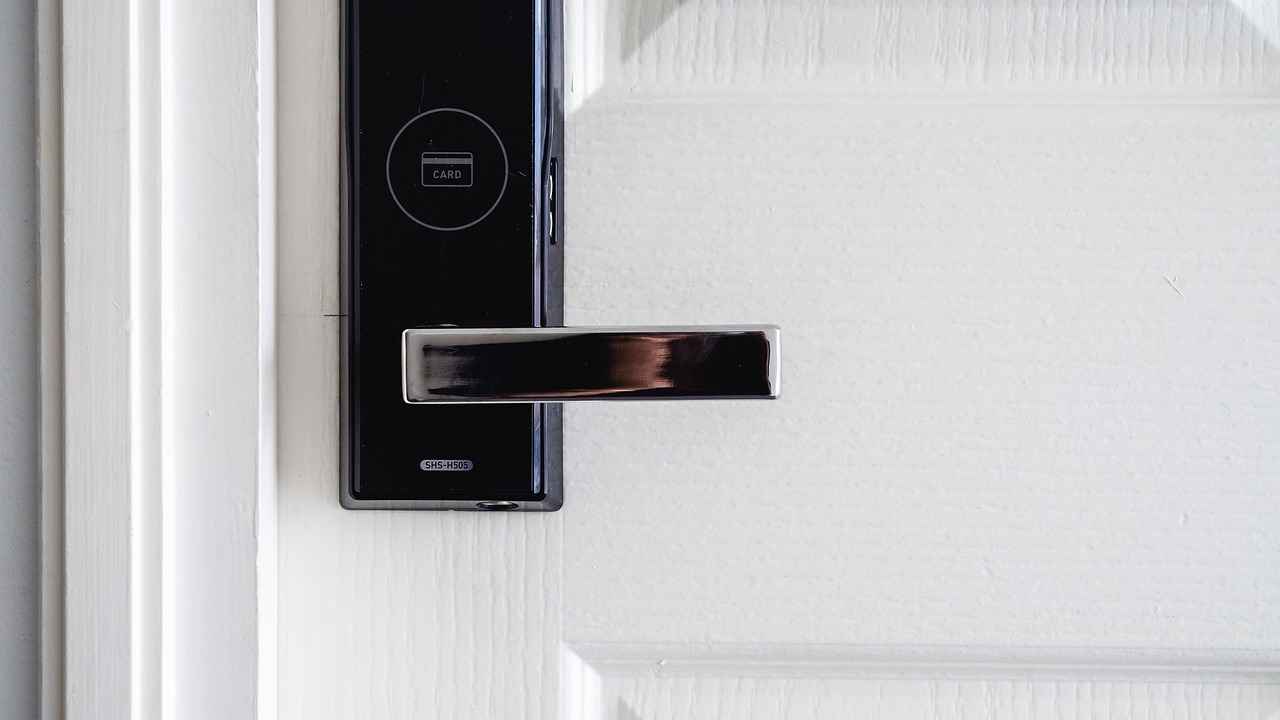
Increased Property Value
In the competitive real estate market, smart home technology has become a significant factor in determining a property’s value. By integrating advanced devices and systems into a home, sellers can not only attract potential buyers but also justify a higher asking price. This section delves into how smart home features can enhance property appeal and increase market value.
- Attracting Tech-Savvy Buyers: As technology continues to evolve, more buyers are seeking homes equipped with the latest smart devices. Features such as smart thermostats, security systems, and lighting can make a property stand out, appealing to a demographic that prioritizes convenience and modern living.
- Enhanced Energy Efficiency: Homes with smart energy management systems often showcase reduced utility costs. Buyers are increasingly aware of the long-term savings associated with energy-efficient homes, making them more willing to invest in properties that promise lower monthly expenses.
- Security Features: The presence of smart security devices, such as video doorbells and smart locks, not only provides peace of mind for homeowners but also serves as a selling point. Properties with enhanced security features are often perceived as safer, which can be a decisive factor for many buyers.
- Future-Proofing Your Home: By investing in smart technology, homeowners position their properties as future-ready. As home automation becomes more mainstream, having a smart home can significantly increase its desirability and market value.
Market Trends and Buyer Preferences
Current market trends indicate a growing demand for smart homes. According to various real estate studies, homes equipped with smart technology can sell for up to 5% more than those without. This trend reflects a shift in buyer preferences, where technological advancements play a crucial role in purchasing decisions.
Conclusion
Investing in smart home technology is not just about enhancing daily living; it is also a strategic move to increase your property’s market value. As the demand for smart homes continues to rise, homeowners who embrace this trend will likely see a significant return on their investment when it comes time to sell.
Market Trends and Demand
As the world becomes increasingly digitized, the demand for smart home technology is surging. Homebuyers are now prioritizing properties equipped with advanced devices that enhance convenience, security, and energy efficiency. This shift in consumer preference is reshaping the real estate landscape, making smart homes a hot commodity.
Many factors contribute to this trend. Firstly, the integration of smart devices allows homeowners to manage their properties remotely. For instance, smart thermostats and lighting systems can be controlled via smartphones, providing flexibility and comfort. This level of control is particularly appealing to tech-savvy buyers who value convenience.
Moreover, enhanced security features offered by smart technology are a significant draw. Homebuyers are increasingly aware of the importance of safety, and smart security systems that include features like real-time monitoring and alerts are becoming essential. For example, smart cameras and doorbells provide homeowners with the ability to monitor their property from anywhere, offering peace of mind.
Another critical factor is the energy efficiency that smart devices bring. With rising utility costs, buyers are looking for homes that can help them save money in the long run. Smart devices, such as energy-efficient appliances and automated lighting, can significantly reduce energy consumption, making homes more attractive to potential buyers.
Investment in Future Technology is also a key consideration. Purchasing a home equipped with smart technology is not just about immediate benefits; it’s about preparing for the future. As technology continues to evolve, homes that are already equipped with smart devices will likely retain their value and appeal, making them a wise investment.
In conclusion, the growing demand for smart homes reflects a broader trend in real estate, driven by the desire for convenience, security, and sustainability. As more buyers seek out properties that incorporate smart technology, the market will continue to evolve, making these homes increasingly sought after.
Investment in Future Technology
In an ever-evolving technological landscape, investing in smart home devices is not just a trend; it is a necessity for homeowners looking to stay ahead. As technology advances, the integration of smart devices into our homes prepares us for a future that is more connected, efficient, and user-friendly. This article delves into the reasons why embracing smart technology today is an investment in a modern and appealing home for years to come.
- Future-Proofing Your Home: By installing smart devices, you are essentially future-proofing your home. These devices are designed to be compatible with upcoming technologies, ensuring that your home remains relevant as new advancements emerge.
- Increased Home Value: Homes equipped with smart technology are increasingly attractive to potential buyers. Investing in these devices can significantly enhance your property value and appeal in the real estate market.
- Seamless Integration: Many smart devices can be easily integrated with one another, creating a cohesive ecosystem that enhances functionality. This interconnectedness allows for smoother operation and improved user experience.
Moreover, as smart home technology continues to evolve, devices are becoming more energy-efficient, which can lead to substantial cost savings over time. For instance, smart thermostats and lighting systems can adjust based on your habits, reducing unnecessary energy consumption.
In conclusion, investing in smart home devices today is a strategic move that prepares your home for future technological advancements. By doing so, you not only enhance your living environment but also ensure that your property remains modern and appealing in the long run. Embracing this technology today can lead to a more efficient, secure, and enjoyable home tomorrow.

Conclusion: The Future of Smart Homes
In today’s fast-paced world, embracing smart home devices is not just a trend; it is a crucial step towards enhancing your quality of life and preparing your home for future advancements. These devices bring a multitude of benefits that transform ordinary living spaces into intelligent environments.
First and foremost, the integration of smart technology offers unparalleled convenience. Homeowners can control lighting, heating, security systems, and appliances from their smartphones or through voice commands. This level of control simplifies daily tasks, allowing individuals to focus on what truly matters in their lives.
Moreover, smart home devices significantly enhance security. With features like real-time monitoring, instant alerts, and remote access, families can ensure their homes are safe, even when they are away. The peace of mind that comes from knowing you can monitor your property at any time is invaluable.
Additionally, the energy efficiency provided by smart devices leads to substantial cost savings. Smart thermostats, for instance, learn your habits and adjust heating and cooling accordingly, reducing unnecessary energy consumption. This not only lowers utility bills but also contributes to a more sustainable lifestyle.
As the demand for smart homes increases, investing in these technologies can significantly boost property value. Homes equipped with smart devices are more attractive to potential buyers, reflecting a growing trend in the real estate market. This investment ensures that your home remains modern and appealing, ready to adapt to future technological advancements.
In conclusion, integrating smart home devices is a wise decision for any homeowner. It enhances daily living, provides security, saves energy, and increases property value. As technology continues to evolve, embracing these innovations will undoubtedly prepare your home for the future, making it a worthy investment.
Frequently Asked Questions
- What are smart home devices?
Smart home devices are technology-enabled gadgets that allow you to control various functions in your home, such as lighting, security, and temperature, all from your smartphone or through voice commands.
- How do smart home devices enhance security?
Smart home security devices like cameras and doorbells offer real-time monitoring and alerts, allowing you to keep an eye on your property from anywhere and respond quickly to any potential threats.
- Can smart home devices save me money?
Absolutely! Smart devices, such as thermostats and lighting systems, optimize energy usage, which can lead to significant savings on your utility bills over time.
- Are smart home devices easy to install?
Most smart home devices are designed for easy installation, often requiring just a few steps and no professional help. However, some complex systems may benefit from professional setup.
- Will smart home technology increase my property value?
Yes, homes equipped with smart technology are increasingly appealing to buyers, potentially increasing your property’s market value and attractiveness.
